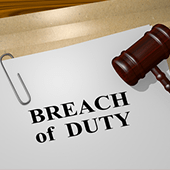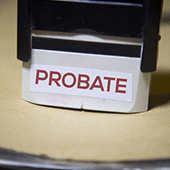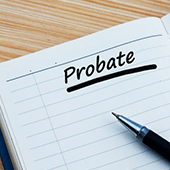Experience.



Florida Foreclosure Defense Lawyer
Law Offices of Andrew J. Pascale, P.A. DBA Florida Foreclosure Defense Law Firm, P.A.’s focus is on foreclosure defense and civil litigation. Its aim is to represent clients needing assistance in foreclosure defense and civil litigation matters throughout Florida.
Experienced Counsel
The firm has the experience to help clients overcome serious legal challenges whether they’ve resulted from a sudden change in circumstance or simply from being too busy and working too hard on their goals. It offers you the best professional assistance regardless of the situation you might find yourself in. Its aim is to ensure you achieve a fair outcome.
The firm is available to listen carefully and soundly evaluate your position no matter what stage of the legal process you may be in. We will help you determine what’s your best course of action. Our experience and hard work over the past decade have led several favorable settlements and verdicts on behalf of our clients. Let this experience and hard work pay off for you.
Our firm’s goal is to proactively guide you towards a successful outcome. The full array of our experience, including– counselling and communication skills, legal advocacy skills, mediation, and trial experience is available to you. We are here to help you with a wide variety of matters including:
Foreclosure Defense and Real Estate
- Foreclosures including foreclosure defense of homeowners and condominium associations and second mortgages
- Debt Collection Defense
- Real Estate litigation
- Partitions (Division of Land)
- Commercial Landlord/Tenant Deposit Disputes
Probate
- Court supervised process of probating the estate of a loved one
- Summary, Formal, Ancillary Administration
- Resolution of disputes arising from the probate process
- Assets and Liabilities
- Objections to and Defense of Probate Accountings
- Will Challenges
- Removal of a Personal Representative
- Claims of Undue Influence and/or Financial Exploitation
Litigation
We cover a wide variety of cases while intensively focusing on each individual client’s needs. We generally aim to resolve most of these matters in meetings and negotiations outside of the courts. But for others, these more complex issues may give rise to claims on an emergency basis, with one side or the other seeking a temporary restraining order or a preliminary injunction. In your best interests, we may advise you to aggressively pursue legal actions to resolve these situations. Our experience in representing businesses and business disputes includes:
- Joint Venture Agreements
- Business Contracts
- Business Accountings
- Business Mediation
- Partner Agreements and Disputes
- Non-Compete Agreements
- Fraudulent Transfers
- Business Assets Theft
- Business Defamation
- Breach of Fiduciary Duty and Financial Mismanagement
- Business Fraud
- Shareholder Derivative Litigation
- Tortious Interference with Contract or Prospective Business Relations
- Business Disparagement, Unfair Competition and Theft of Trade Secrets
- Creditors Rights, including claims for Open Account or Account Stated
Representation in Lawsuits
We pride myself on my experience in mitigating the emotionally charged nature of many legal disputes. Getting adversarial parties to progress from the mindsets that lead to protracted disputes (and rising costs) is the goal. This goal can often times be reached through informal discussions or at mediation. But if this does not resolve the dispute, and you or your business have been sued, or if you are seeking help from the courts to enforce your legal rights, we are ready to aggressively represent your case in court. We treat every case with the utmost attention to produce a fair conclusion and get our clients back to normal as soon as possible.
Practice Areas: Foreclosure Defense, Partitions, Civil Litigation
Foreclosure Defense

We have been routinely representing homeowners in Foreclosure disputes for over a decade and are superbly qualified to handle any Foreclosure dispute, having won at trial and on appeal for both lenders and homeowners. The prevalence of foreclosure and the economic conditions that cause it are likely to remain. At-risk Consumers should seek out the help of a lawyer early to develop appropriate plans. To a lender, a home is more is typically an asset. However, to a homeowner, a home’s value is sentimental as well as financial. However, the laws do not consider sentiment. You should plan on how to preserve your home and assets with the help of counsel. We will help you devise plans and aggressively pursue them on your behalf to optimize results. Options may include using one or more combinations of the following actions: successfully entering into a loan modification agreement, aggressively trying the case on the merits, selling the property (short sales). Facing foreclosure is never easy. Let a trusted and reputable lawyer protect your castle.
Partitions (Division of Land)

When two or more people co-own land and cannot agree on how to divide it among themselves, the remedy of Partition is available. In order to seek partition, the claimant must show title to the property or a right to partition. This is typically shown through a deed conveying ownership. Partition results in either the division of the land or the sale of the land, after which the proceeds are equitably divided among the co-owners. Partition disputes often center on disagreements as to how much money each party should receive. Our firm has extensive experience in representing clients in partition lawsuits and helping them recover the maximum amount of proceeds after sale.
Debt Collection Defense

Ideally, a debtor/creditor relationship should be an equal balance. On one hand, a creditor has a clear right to recover 100% of the debt it is owed provided it abides by the law and plays by the rules. Conversely, debtors ought to make timely payments. A party who is awarded a final money judgment is referred to as a judgment creditor. Often times, a judgment creditor must take certain additional steps to collect what it is owed on its judgment since the judgment debtor does not usually pay off the judgment voluntarily. The process of collecting on a judgment typically begins with the judgment creditor researching the debtor’s assets to determine what assets exist and how to proceed. If the judgment creditor is unable to locate and seize the judgment debtor’s assets through the local Sheriff (generally either because the assets can’t be located or because they aren’t readily accessible), then the judgment creditor has the right to summon the debtor to before the court and question him/her under oath about the existence of any property that may be used to satisfy the judgment. This type of proceeding is referred to as a “Proceeding Supplementary” because it is in furtherance of the original proceeding that was used to obtain the judgment. Proceedings Supplementary are governed by Fla. Stat. Section 56.29 which provides the framework from which the judgment creditor may pursue any number of claims against the judgment debtor in order to execute on its judgment. Most often fraudulent transfer claims are filed by the judgment creditor that allege that the judgment debtor has transferred away property in order to hinder the creditor from obtaining it. Often times, the economics and uncertainty of legitimate fraudulent transfer claims is enough to compel a judgment debtor to make good on his/her obligation to pay off the judgment or settle with the judgment creditor. Sometimes, however, a creditor oversteps the legal bounds and abuses a debtor by attempting to collect on a debt that its knows is illegitimate. To make matters worse, the debtor is generally in a vulnerable position, with much fewer financial resources than the creditor and may wind up being bullied and paying a debt it doesn’t truly owe as a result. The creditor may become nothing more than a tormentor in the life of the debtor and the debtor may feel like a black cloud is hanging over them. Fortunately, the Florida Consumer Collection Practices Act provides an effective weapon against unfair or unscrupulous creditors. Anyone who believes that a creditor is taking unfair advantage of them should seek the advice of qualified Florida lawyer who can fully evaluate their rights and put an end to debt collection abuse.
Fraudulent Transfers

Businesses and Judgment Creditors that are owed money and believe that someone has deliberately transferred away his/her assets to a third party in order to try and hinder, delay or prevent them from legally obtaining money owed to them should consult with an attorney to file a Fraudulent Transfer claim against the wrongdoer. Such claims are made in order to undo the transfer. Fraudulent Transfer claims are often brought after a final judgment has been entered in separate cases called “Proceedings Supplementary,” and they involve proving that that the transfer was fraudulent -as the name implies. It is important to recognize what the Tell-Tale Signs of a fraudulent transfer are. We can help you develop a strategy.
Commercial Litigation / Business Defamation

Business litigation is a broad term used to describe a variety of situations where a business is a party to a lawsuit. Some of these situations involve Defamation. Defamation of someone’s business generally occurs when a person knowingly posts false and disparaging remarks on social media websites, in written literature about the business or its officers, or in some other public way that harms the reputation of the business by deterring people from dealing it with it, attacking its methods of doing business, assailing its management, or negatively impacting its credit-worthiness. This can result in the businesses suffering a loss of profits. It is important that a business act quickly to have the false information removed and sue to recover any monetary damages it may be owed. Learn more about Business Defamation here.
We represent clients in the following areas:
Foreclosure Defense. Partitions. Debt Defense. Business Contracts. Fraud. Tortious Interference with a Contract or Prospective Business Relations. Business Assets Theft. Shareholder Derivative Lawsuits. Business Disparagement Unfair Competition and Theft of Trade Secrets. Partnership Agreements and Disputes.
Breach of Fiduciary Duty

People in such relationships as corporate directors to shareholders, general partners to limited partners, managing members of limited liability companies to members, brokers to clients, trustees to beneficiaries, guardians to wards, and business partners who hold positions of trust with power over the interests of others–all owe special duties called Fiduciary Duties.
The most basic duty of a fiduciary is the Duty of Loyalty, which obligates the fiduciary to put the interests of the beneficiary first, ahead of the fiduciary’s self-interest, and, in so doing, to refrain from exploiting the relationship for the fiduciary’s personal benefit. In addition to a duty of loyalty, a fiduciary also owes a Duty of Care to carry out its responsibilities in an informed and considered manner and to act as an ordinary prudent person would act in the management of his or her own affairs. A person in power who abuses his/her fiduciary duties can be responsible for the losses caused.
Fiduciary relationships are not always easy to discern and the law surrounding just who exactly owes fiduciary duties to someone else in our world can be elusive. My firm–covering all of southern Florida–provides careful analysis to determine the presence of specific factors contributing to the creation of fiduciary relationships for each unique situation.
Probate

Probate is the court-supervised legal process where a decedent’s assets are discovered, identified, and then legally transferred to their rightful owner. Probate is necessary because a loved one’s property does not always automatically transfer to his heirs upon death. Only those assets owned by the decedent jointly as tenants by the entirety with a spouse, or with rights of survivorship with a spouse or any other person automatically pass to the surviving owner without the need for probate. On the other hand, assets that are owned solely by the decedent at the time he passes are not automatically transferred and therefore need to be probated. This is the main aspect of probate but there are many other statutory requirements that must be performed in probating an estate. For example, probate makes it possible for the decedent’s creditors to be identified and paid. Also, if the decedent left a will, the will is required to be probated in the court, or it will be deemed ineffective as a means to pass ownership of probate assets to the decedent’s beneficiaries. Our firm is knowledgeable probate lawyer who can guide you through the Probate Process.
Probate Administration

The decision whether to file probate as Formal or Summary Administration is based on the value of estate and what the will says, if there is one available. If an estate has assets valued at more than $75,000, then Formal administration is used. If there is no will providing otherwise, and the value of the estate is less than $75000 minus any exempt assets (for example, homestead real property in many circumstances) then Summary administration may be used. However, if more than two years have gone by since the person has passed, and no probate has been opened yet, then Summary Administration may be used regardless of the estates value.
Formal Administration is more involved. For example, in Formal Administration, potential claims for creditors must be published in a newspaper in order to demonstrate responsibility to pay all just debts. Hence, creditors are given time to act and recover what is rightfully theirs. However, the process is bounded by time limits. They must file claims within three months of the date of publication or else they will lose their claims forever. This requirement does not exist in Summary Administration although it may be appropriate in some circumstances.
There is also a third type of administration known as disposition of personal property without administration. This is similar to a Summary administration but there can be no real property included within the assets of the estate to use Summary Administration without administration, and the assets of the estate cannot exceed what is needed to pay for funeral and reasonable medical expenses incurred within the last 60 days.
Probate Litigation

Probate litigation arises when an otherwise uncontested probate turns adversarial in nature among the heirs of an estate of a deceased. Probate litigation is carried out under Florida’s Probate Code and may involve application of several statutory rules of law to a complex set of facts. Procedures in probate litigation often differ than those used in everyday litigation. Our firm concentrates in the following areas of probate litigation:
- Breach of Fiduciary Duty and Financial Mismanagement
- Challenges to Wills and Trusts / Claims of Undue Influence
- Objections to and Defense of Probate Accountings
- Removal of a Personal Representative and Surcharge Proceedings
- Wrongful Death Claims
- Malicious Interference with a Will or Trust
If you are currently involved in probate dispute, you should contact an experienced Florida probate attorney before your rights are lost.
Practice Areas
Client Reviews
I contacted Andrew for assistance with the selling of my business. He was very knowledgeable and explained the process to me during the selling of my shop. The documentation was produced very quickly and accurately which made both parties very comfortable with the process. I would highly recommend...
Andrew Pascale was assigned to my cases about 6 years prior. The magnificent work he completed through the years was amazing. He is very detailed and direct with important matters. I felt comfortable with my cases being handled by him. He kept me informed of the status and just what was going on. I...
We were having problems with collections in our business. Andy stepped up quickly to take over the process from our last attorney.
Contact Us
- 1 Contact Us Now
- 2 Over a Decade of Experience
- 3 Speak With an Attorney Directly




